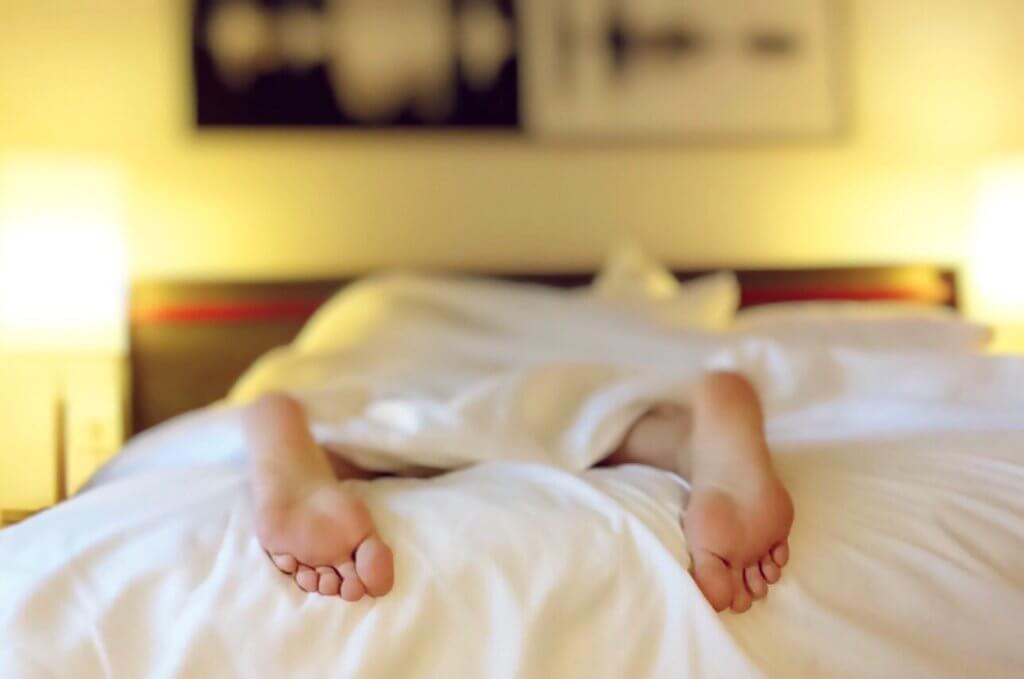As if you don’t have enough going on during menopause, you might very well find yourself not smelling at your best either.
Today, we’ll look at why body odour tends to strike during the change along with what you can do to hit back.
What Is Body Odour?
Body odour, formally known as bromhidrosis, first kicks in during puberty when hormones called androgens become active. (1)

A common misconception is that its sweat itself that causes an unpleasant smell. Perspiration alone has very little odour to it.
The problem arises when sweat meets bacteria on the surface of the skin. This breakdown of keratin protein is what brings about the nasty whiff. (2)
You have 2 types of sweat glands in your body. Eccrine glands occur throughout the body whereas apocrine glands crop up in the hairy areas like armpits and groin.
It’s the bacterial breakdown of apocrine sweat that usually results in body odour so why, exactly, does this get worse during menopause?
Why Is Body Odor Worse During Menopause?
Several of the most frequently experienced menopause symptoms lead to an increase in sweating.
Hot flashes raise your core temperature while sweating throughout the night becomes commonplace. This perpetuates an already vicious cycle leading to worsening insomnia alongside a propensity to sweat more profusely than normal. (3)
Your mood can also be dramatically affected during the change which can provoke problems falling asleep and staying asleep. As you thrash around unable to sleep, you’re likely to get even more agitated and to sweat even more as a result. (4)
As with so many menopausal issues, hormones also play a pivotal role when it comes to body odor.

Under normal circumstances, estrogen manipulates the hypothalamus, the part of your brain that controls your body temperature. Since estrogen levels plummet during menopause, your system compensates by producing more sweat. This, in turn, has more chance to mix with bacteria causing that disconcerting whiff. (5)
So…
Not only do menopause symptoms have a direct effect on the way you smell, declining hormone levels also conspire against you.
Are you ready for the good news now?
Well, combating body odour really isn’t that tough if you focus on some key areas we’ll outline for you right now.
6 Tips To Improve Body Odour Today
Pay attention to the following if you are becoming distressed at a resurgence of teenage body odour on top of all the other problems associated with menopause.
1) Apply Deodorant at Night
Rather than showering and hitting the deodorant in the morning, try tweaking your routine to bathe at night instead. The deodorant then has plenty of time to take effect and will work better to fight away sweat accumulated over the following day. (6)
You should bear in mind that deodorants do not stop sweating, they simply reduce the unpleasant smell by covering it up with a fragrance. Even antiperspirants only lessen sweating rather than putting the kibosh on it completely.
2) Don’t Stint on Bathing
Since body odour comes about when bacteria meets perspiration, it makes sense to cut that bacteria off as much as possible.
One obvious way to do this is to shower on a daily basis, more often if you have been to the gym or out and about.
3) Think About Diet
Sometimes, simple dietary changes can cut back on body odour.
Fatty foods and anything with a dominant smell like garlic can increase the acidity of your sweat so cut back on any offending products and see if that makes a difference. Eliminate red meat, anything spicy or deep-fried as well as reducing your consumption of alcohol and you should notice an immediate and pleasing difference. (7)
4) Stay Hydrated
You should shoot for 2 litres of water daily so you stay properly hydrated.
In addition to being good for your overall health, drinking plenty of water is a smart way to flush all the waste and toxins from your system which in turn should stop that smell.
5) Consider Alternative Approaches
Whether it’s baking soda, famed for the way it absorbs moisture and deodorizes the skin, or apple cider vinegar to get your pH levels in balance, it’s well worth investigating alternative methods.
6) Reduce Your Stress Levels
Stress can ramp up the amount of sweat your body produces from the apocrine glands. (8)
While it’s not easy during the change, anything you can do to decrease the pressure of modern life will also help to stop that annoying body odour in its tracks.
REFERENCES
- https://www.webmd.com/children/ss/slideshow-puberty-stages
- https://www.medicalnewstoday.com/articles/173478.php
- https://sleepfoundation.org/sleep-topics/menopause-and-sleep
- http://healthysleep.med.harvard.edu/need-sleep/whats-in-it-for-you/mood
- https://www.consumerhealthdigest.com/menopause-center/menopause-and-changes-in-body-odor.html
- https://lifehacker.com/apply-antiperspirant-at-night-for-maximum-effectiveness-1570562830
- https://steptohealth.com/food-causes-body-odor/
- http://www.anxietycentre.com/anxiety-symptoms/sweating-anxiety.shtml





This form is protected by reCAPTCHA and the Google Privacy Policy and Terms of Service apply.